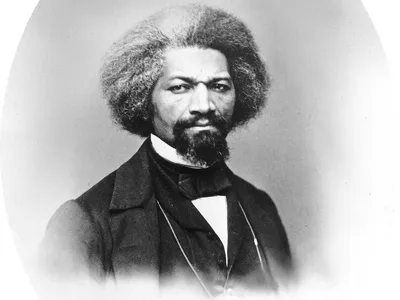
The video of Trye Nichols’ brutal death is disturbing, jarring, and horrific. Watching police officers violently attack an unarmed man is emotionally and psychologically traumatizing. The video is an undeniable example of policing gone wrong.
Beyond highlighting the deadly effects of broken policing systems, the video illustrates a sad reality of life in America. What happened to Tyree Nichols could happen to any American. Statistically, however, we know that type of abuse is more likely to happen to Black and Brown men.
The video of Mr. Nichols’ murder shows us that America cannot be a safe place if policing systems are left unchecked. Under current conditions, citizens’ life and liberty are not guaranteed. We are all at risk.
While research offers some explanations of why human beings engage in barbaric violence, it’s hard to wrap our heads around the reality of what happened to Tyre Nichols. His murder is heart-breaking and senseless.
The officers’ behavior is appalling and the slow response of the Emergency Medical Technicians is incomprehensible. In the video, we see public officials showing blatant disregard for human life. It’s gut-wrenching to witness uniformed officers land crushing blows and make impossible demands of Mr. Nichols – needlessly ending a life that was full of promise.
Through reporting, we have learned about the troubled professional history of the officers involved. They were members of the Street Crimes Operation to Restore Peace in Our Neighborhoods (SCORPION) Unit), a special police force known for aggressive tactics and terrorizing communities. They also have disciplinary records.
Don’t Look Away
Despite being unable to fully comprehend what Mr. Nichols experienced, I am filled with a sense of empathy. I think about the terror he felt, the immeasurable pain he endured, and bewilderment that filled his final moments. No human being should suffer what Mr. Nichols suffered and no mother should lose a child in that way.
If you have not yet seen the video of Mr. Nichols last moments, please consider doing so. As you watch, you may be overcome with an involuntary urge to look away – to shield yourself from the disturbing effects of witnessing the officers’ inhumane and barbaric treatment of Mr. Nichols.
It’s important we chose not to look away from what happened to Tyre Nichols. Rather, we must bear witness to his reality and affirm our instinct that this type of behavior has no place in our society.
We cannot continue to allow America’s approach to policing to be out of control. We cannot allow ourselves to be unaffected by the horrors inflicted upon others. Nor can we remain silent and continue to allow government systems to perpetuate violent injustices. Accountability in policing is urgently needed.
See the Larger Context
From the time of slavery, violence and control have been inextricably linked. For centuries, Black and Brown people in America have been traumatized by state-sponsored violence. This kind of historical trauma has led to a modern society in which minorities live with a justifiable fear of being subjected to aggression by those in authority.
For decades, the police, as tangible manifestation of the power of the state, have engaged in acts of violence against American citizens. My earliest recollection of police violence was the beating death of Rodney King. A few short years later, the abuses suffered by Abner Louima and Amadou Diallo hit the national news.
The shocking nature of these cases led to calls for police reform. New Yorkers demanded expanded authority for the Civilian Complaint Review Board (CCRB). Federal laws in the 1990s that promised Department of Justice oversight of local police forces were left enforced. Local efforts to hold police accountable led to resistance that brough police departments to a halt.
The brutal acts perpetrated against Mr. Nichols are undeniable evidence that racially motivated violence and the influence of race on policing continues to be a problem for America. Mr. Nichol’s beating is all too similar to the beating of Rodney King 30 years prior. Despite new approaches to reducing systemic police violence toward minorities, the problem remains. We live in a society where Black and Brown people are more likely to have their civil rights violated and more likely to be killed during a police encounter.
Understand Why
Only those involved could attempt to explain the “why” behind their actions. Personally, I struggle to understand how they unable to empathize with Mr. Nichols. Individual level explanations for their behavior could include wrongly blaming him for their actions (“he made me do it), underlying psychological conditions, the environment, or prolonged exposure to stress.
There are also institutional factors at play. Many believe the culture of policing condones excessive use of force. Others suggest the “cover-it-up” culture is to blame, citing the more than 1.5 billion dollars spent to resolve cases of police misconduct. Addressing institutional factors is a necessary first step to creating real accountability and preventing more senseless killings.
Societal factors may have also influenced the officers’ inability to display empathy. James Forman’s Locking Up Our Own provides insight into the interplay of of race and professional identity among police officers. If we apply Mr. Forman’s theory to the Tyre Nichols case, we’d conclude these officers were impacted by their lifetime experiences of America’s history of dehumanizing Black life, the societal violence perpetrated against Blacks, and even incidences of police violence against Blacks.
The Time Is Now
Policing in America is a continuum of violence that has resisted reform. Nearly four decades of efforts to end racial profiling, implement de-escalation interventions, and utilize administrative actions have failed to produce lasting change. Eradicating the root cause of lethal policing can only be done by shining a light on internal operations and ensuring the police are accountable to the citizens they are sworn to protect.
According to the Washington Post, over 1000 people have been shot and killed by police since 2022. Said differently, over 1000 people have been killed in the 12 months following the death of George Floyd – an event that sparked national and international protests demanding real change in policing. We know that 1000 underestimates the real count – because not death of a citizen in police custody is reported.
Those 1000 deaths occurred while the George Floyd Justice in Policing Act was being introduced in Congress. The bill languished and incidents of police violence continued. Politics, among other things, have stalled national reform efforts and lack of change at the state level can be attributed to lack of appetite, lack of funding, and conflicting priorities.
Never Stop Trying
Fortunately, Congressional efforts to reform policing continue. Legislators must realize that police brutality is an issue that threatens all Americans. Racial injustice is a factor – but the lack of humanity that characterizes America’s criminal justice system affects all of us.
Frederick Douglass’ cautionary words from centuries ago are more relevant than ever today. He said, “Find out just what any people will quietly submit to and you have the exact measure of the injustice and wrong which will be imposed on them.”
Our response to reprehensible injustice done to Tyre Nichols will define the society we live in and the one our children will inherit.
